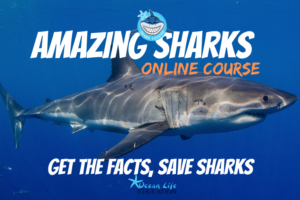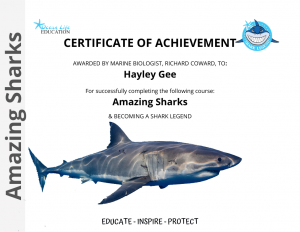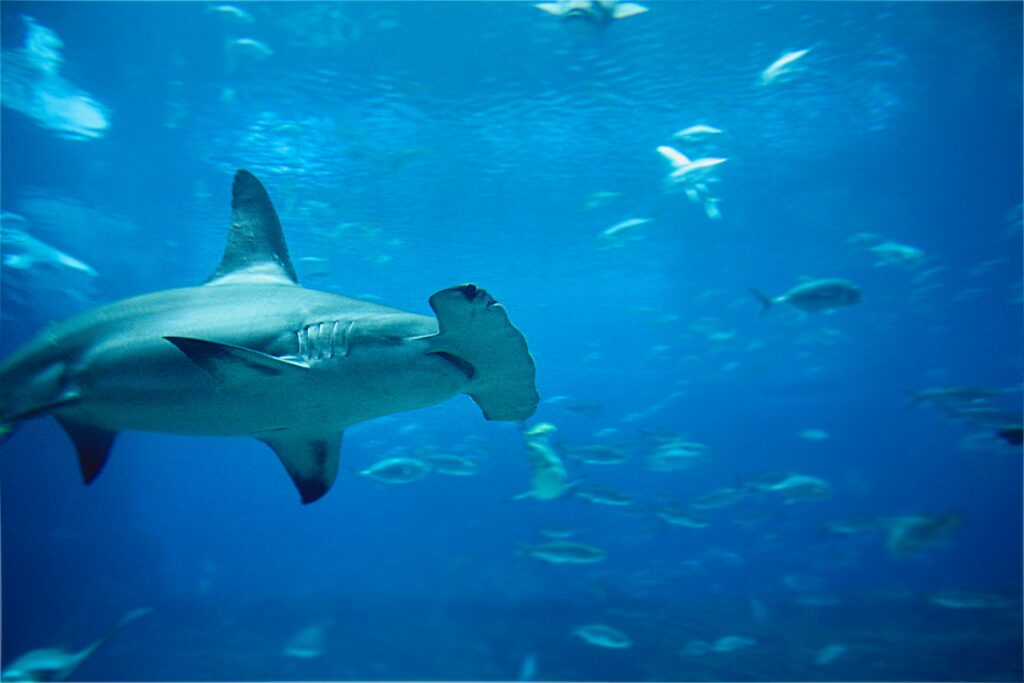
Sharks and rays take the spotlight on July 14 each year as we celebrate Shark & Ray Awareness Day. This global event focuses on the positive impact that sustainability can have on populations of these magnificent species in our oceans.
Sharks and rays are true marvels of natural selection, with extraordinary physical and behavioral adaptations that have allowed them to thrive in diverse marine environments. These creatures play a crucial role in marine food webs and contribute significantly to the health and balance of our oceans.
Rays, often referred to as “flattened sharks,” are closely related to their more well-known cousins. They possess unique features, such as their flattened bodies and wing-like fins, which make them exceptional swimmers and hunters. Both sharks and rays are indispensable contributors to the delicate ecosystem of our oceans.
Shark & Ray Awareness Day serves as a platform for education and engagement. By understanding these amazing creatures, we can all play a vital role in protecting them and ensuring their survival for generations to come.
Core messages of Shark and Ray Awareness Day
- Educate the public
- Promote sustainable practices
- Combat Misconceptions
- Support Conservation Efforts
- Engage the Youth
Read on to discover why we need to raise awareness and what you can do to help…
Combating Misconceptions in Australia 
Sharks often face an unjustified negative reputation in the media, overshadowing their critical role in marine ecosystems.
On average, three people are killed by sharks in Australia each year. Many more fatalities occur due to encounters with horses and cows. In comparison, an estimated 100 million sharks are killed worldwide by humans annually.
Sharks, in particular, have been subject to negative portrayals in popular media and culture, leading to fear and unwarranted demonization. Many people associate sharks with danger and aggression, which has perpetuated the idea that they are ruthless killers. In reality, shark attacks on humans are relatively rare, and most shark species are not a threat to humans.
How can you help?
One effective way to address this image problem is by learning all you can about sharks and rays, and sharing your enthusiasm with others. You can also choose to support only media that portrays a positive image of these misunderstood animals.
Australia Needs Sharks
Sharks are crucial for the sustainability of Australian waters and marine environments globally. They serve as top predators, helping to control the balance of marine species and ensure ecological stability. Removing sharks from these ecosystems would have far-reaching consequences, disrupting the delicate balance of marine life and threatening the health of coral reefs, including the magnificent Great Barrier Reef in Queensland.
The Great Barrier Reef Needs Sharks
The Great Barrier Reef, the world’s largest natural wonder, is a global treasure attracting millions of tourists every year. Sharks are an integral part of this vibrant ecosystem, contributing to its biodiversity and resilience. Their presence enriches the experience of divers and snorkelers, offering an opportunity to witness the wonders of the marine world up close.
Read Our Guide to Sharks Down Under
Support Shark Conservation Efforts
The excessive and indiscriminate fishing of sharks and rays, driven by the high demand for their products, is the primary threat to their survival. The demand for shark fins, in particular, has led to a devastating practice known as shark finning, where sharks are caught, their fins are cut off, and the rest of the body is often discarded back into the ocean, still alive. This wasteful practice has resulted in serious declines in many shark and ray populations worldwide. As a result of these unsustainable fishing practices, one-third of shark and ray species are now classified as threatened with extinction
How can you help?
You can help by supporting campaigns and by always purchasing sustainable seafood. Remember, shark is often labelled as flake in Australian fish and chip shops.
How to Engage Kids and Celebrate Shark and Ray Awareness Day
We need to take time to learn the facts about sharks and why they are so important to us and our world, so that we can help to protect them. Inspiring kids by teaching them about sharks is crucial to improving the outlook for sharks.
We have created a range of FREE shark videos and fact sheets to assist in teaching children, as well as a paid online teaching resource pack and an online sharks course for kids.
Our resources and videos cover the following shark themed curriculum topics for kids:
Adapatation, Habitats, Human Impact, Food Webs, Natural Selection, Classification, and more…
Amazing Sharks Videos for Kids
Ocean Life Education’s owner and Director of Education, Richard Coward, is a marine scientist and recently created a range of engaging shark videos for kids, entitled:
- Built to Hunt
- The Point of Teeth
- Why We Need Sharks
- Why Sharks Attack
Click here to watch Amazing Sharks video
Quiz – Search for Your Inner Shark
How much are you like a shark??
We hope you enjoy our resources and courses and that you become an advocate for our misunderstood sharks and rays too.
Other Important Shark & Ray Awareness Days to Remember
- June 25- Angel Shark Day
- August 30- International Whale Shark Day
- September 17- World Manta Day
- October 17- International Sawfish
- October 30- Ghost Shark Day
Useful links
Join a volunteer shark conservation organisation like:




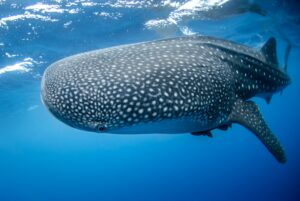
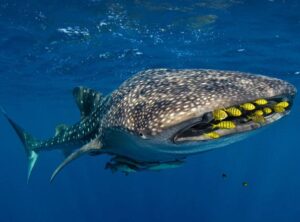


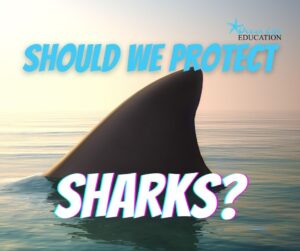
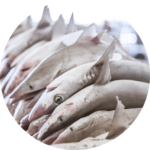 Many people fear sharks because of sensationalised stories in the media and scary films like Jaws.
Many people fear sharks because of sensationalised stories in the media and scary films like Jaws.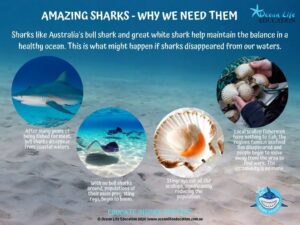
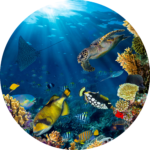 Sharks are APEX predators, which means they sit at the top of the food chain and help control the numbers of animals below them in that food chain. By controlling populations of large and mid-sized predators, sharks allow smaller fish to thrive, which has a knock on effect on the food chain below them. Therefore, sharks help create a healthy ecosystem with a diverse range of species and competitors.
Sharks are APEX predators, which means they sit at the top of the food chain and help control the numbers of animals below them in that food chain. By controlling populations of large and mid-sized predators, sharks allow smaller fish to thrive, which has a knock on effect on the food chain below them. Therefore, sharks help create a healthy ecosystem with a diverse range of species and competitors.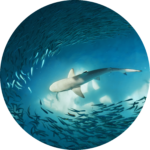
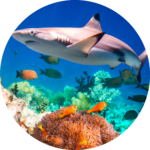 Sharks help prevent habitat loss. Habitats like coral reef depend on their fishy caretakers, like the little reef fish that live on them and clean and protect them from disease. Without sharks controlling numbers of big fish in a marine ecosystem, the numbers of these fish could explode. They would in turn kill off the smaller fish. If that happens, the reef would become diseased and die off, affecting millions of animals that depend on it for survival.
Sharks help prevent habitat loss. Habitats like coral reef depend on their fishy caretakers, like the little reef fish that live on them and clean and protect them from disease. Without sharks controlling numbers of big fish in a marine ecosystem, the numbers of these fish could explode. They would in turn kill off the smaller fish. If that happens, the reef would become diseased and die off, affecting millions of animals that depend on it for survival. The earth’s ocean produces 70 % of the oxygen we breath, food to eat, controls the climate, breaks down pollution, provides us with medicine and much, much more.
The earth’s ocean produces 70 % of the oxygen we breath, food to eat, controls the climate, breaks down pollution, provides us with medicine and much, much more.
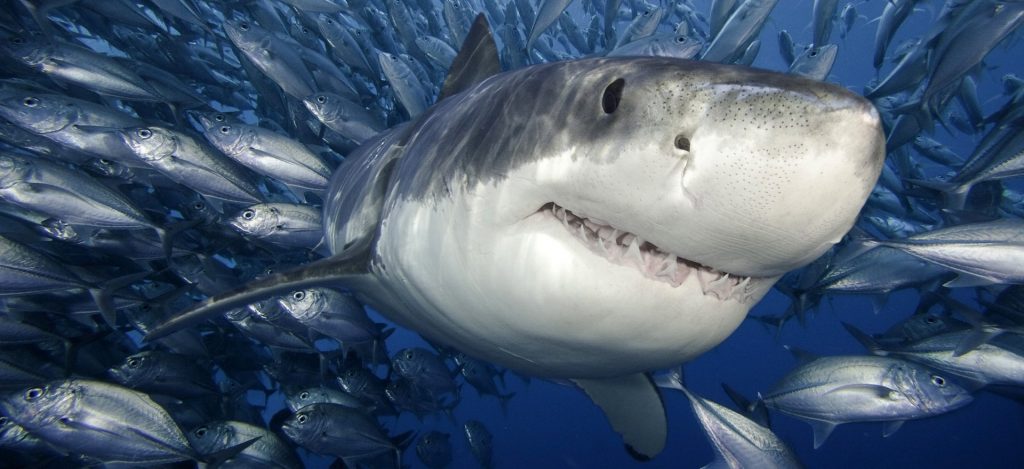
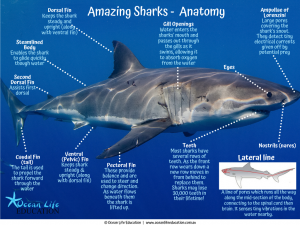
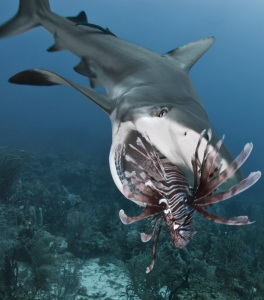
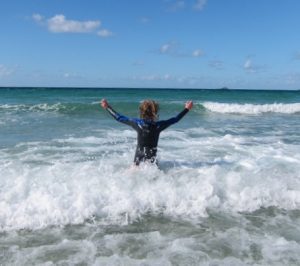 Through the fascinating topic of sharks, kids can learn a host of curriculum themes such as adaptation, habitats, human impact, food webs, natural selection and classification. Studying the curriculum, while being thoroughly engrossed in the subject matter, makes the process of learning all the more enjoyable and inspiring.
Through the fascinating topic of sharks, kids can learn a host of curriculum themes such as adaptation, habitats, human impact, food webs, natural selection and classification. Studying the curriculum, while being thoroughly engrossed in the subject matter, makes the process of learning all the more enjoyable and inspiring.